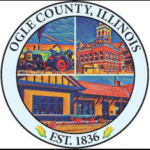Head injuries are common, and they can happen to anyone at any time. Concussions are a type of head injury that can have a significant impact on a person’s daily life. Concussions can cause a wide range of symptoms, including headaches, dizziness, nausea, and memory problems. Fortunately, there are a variety of treatments available to help speed up recovery from a concussion. One such treatment is concussion supportive therapy. In this blog post, we will explore how concussion supportive therapy can help individuals recover from head injuries and get back to their daily lives.
Healing the Brain
A concussion is a type of traumatic brain injury caused by a blow to the head or body. While most people recover from a concussion within days or weeks, some may experience long-lasting symptoms that affect their daily functioning. This is where concussion supportive therapy comes in.
Concussion supportive therapy refers to a range of treatments aimed at helping individuals recover from a concussion. These treatments may include physical therapy, occupational therapy, cognitive therapy, and speech therapy, among others. The goal of concussion supportive therapy is to speed up recovery, reduce symptoms, and improve quality of life.
Physical therapy is one of the most common forms of concussion supportive therapy, as it helps individuals regain strength, balance, and coordination. Physical therapy may include exercises to improve mobility, endurance, and flexibility, as well as manual therapy techniques to relieve pain and stiffness.
Occupational therapy focuses on helping individuals with a concussion return to their daily activities, such as work, school, and leisure activities. Occupational therapists may work with individuals to develop strategies for managing symptoms, such as fatigue or difficulty concentrating, and to improve their ability to perform daily tasks.
Cognitive therapy is aimed at improving cognitive function, such as memory, attention, and problem-solving skills. Cognitive therapy may involve exercises and activities designed to improve brain function and reduce cognitive symptoms, such as confusion, forgetfulness, and difficulty concentrating.
Faster Recovery
Head injuries are a common occurrence, and they can be caused by various factors such as sports injuries, car accidents, falls, and violence. One of the most common types of head injuries is a concussion, which occurs when the brain is jolted or shaken within the skull. While many people recover from concussions within a few weeks, others may experience symptoms for months or even years. This is where concussion supportive therapy comes in.
Revolutionary Approach
Concussion Supportive Therapy is a game-changer when it comes to treating head injuries. It is a revolutionary approach that can help speed up recovery from concussions and other types of head trauma. The therapy is designed to provide support and care to individuals who have suffered from a head injury, helping them to regain their physical and emotional well-being.
One of the key benefits of Concussion Supportive Therapy is that it provides a comprehensive treatment plan that addresses all aspects of recovery. This includes physical therapy to help patients regain their strength and mobility, as well as cognitive therapy to help improve memory and concentration.
The Role of Concussion Supportive Therapy
Head injuries are a common occurrence and can have significant consequences. Concussions are a type of head injury that can result in a range of symptoms, including headache, dizziness, and confusion. Concussion supportive therapy is an approach that can help speed up recovery from head injuries.
Concussion supportive therapy involves a range of techniques and strategies that are aimed at promoting healing and recovery following a head injury. This may include rest, hydration, and a balanced diet. It may also involve physical therapy, cognitive rehabilitation, and other forms of supportive care.
From Concussion to Recovery: How Concussion Supportive Therapy Can Help
A concussion is a type of head injury caused by a blow, bump or jolt to the head. It can lead to a range of symptoms such as headaches, dizziness, nausea, fatigue, and memory loss. Concussions are common among athletes, military personnel, and accident victims. While most people recover from a concussion within a few weeks, some may experience prolonged symptoms that can last for months or even years.
Concussion Supportive Therapy (CST) is a form of rehabilitation that can help speed up recovery from head injuries. It focuses on addressing the underlying causes of concussion symptoms.
A Holistic Approach to Healing from Head Injuries
Concussion Supportive Therapy is a holistic approach to healing from head injuries. It involves a combination of physical, cognitive, and emotional therapies that work together to speed up recovery and reduce the risk of long-term complications.
The physical aspect of concussion supportive therapy includes exercises and activities that help to improve balance, coordination, and strength. These may include yoga, pilates, and other forms of low-impact exercise. Physical therapy may also be used to address any specific issues related to the injury, such as neck pain or stiffness.










